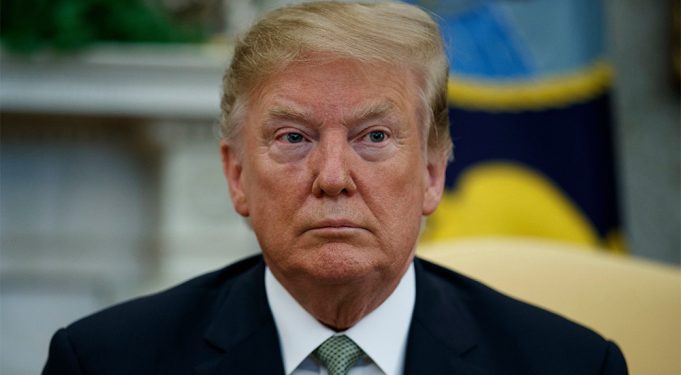Washington: US President Donald Trump has signed a stopgap funding bill, known as the continuing resolution legislation, to keep the federal government open until December 11, averting the possibility of a shutdown.
He signed the bill on Wednesday midnight after returning from a rally in Minnesota.
Earlier in the day, the Republican-majority Senate passed the bill by an 84-10 vote.
It was was unveiled by Democratic lawmakers from the US House of Representatives on October 21.
According to a report in The Hill news website, the bill will allow the government to keep functioning in the new fiscal year, which began at midnight, by keeping funds flowing until December 11.
An NBC News report said that it also includes a bailout for farmers in exchange for boosts in funding for nutrition benefits for poor families requested by Democrats.
Meanwhile, House Speaker Nancy Pelosi and Treasury Secretary Steven Mnuchin met earlier on Wednesday to discuss the next round of coronavirus aid.
Following the meeting, she said that the House plans to vote on Thursday on an updated aid package.
“We will be proceeding with our vote on the updated Heroes Act in order to formalise our proffer to Republicans in the negotiations to address the health and economic catastrophe in our country,” NBC News quoted the veteran Democrat as saying.
Also on September 28, House Democrats unveiled a scaled down $2.2-trillion coronavirus relief package in an effort towards clinching a bipartisan deal before the November 3 presidential election.
In July, Senate Republicans released their $1 trillion proposal, but lawmakers failed to bridge their differences before the August recess.
Earlier this month, the Senate again failed to advance a Republican Covid-19 relief bill, which contained roughly $650 billion in total spending, with new funding of around $300 billion and repurposed previously approved spending of $350 billion.
It also included extra weekly unemployment benefits at a reduced level of $300, but Democrats want to maintain the $600 benefits.
In August, Trump signed several orders to extend certain Covid-19 economic relief, but analysts believe that those measures are unlikely to provide a meaningful boost to the overall economy.
IANS







































